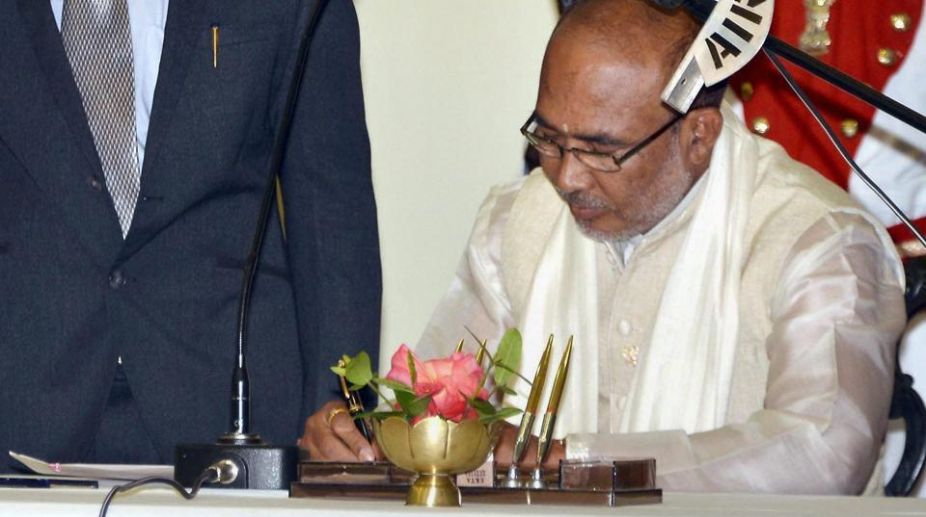The BJP has finally succeeded in its more than three decade-old gameplan to find its feet in Manipur.
Already going great guns after the March Assembly election, the impression sought to be created now is that though it lacks the stamp of legitimacy ~ having won just 21 of the 60 assembly seats ~ its patched-up majority may even repeat the performance in 2022.
Advertisement
This is because it has dependable coalition partners like the four-member Naga People’s Front.
Though not a pre-poll ally, it is part of the Democratic Alliance of the Nagaland government, which has some BJP members.
The other four-member team, the National People’s Party, is pro-Centre.
The lone Trinamul Congress and Independent members were left with little choice but to be part of the team.
Two Congress MLAs have already switched their allegiance. People in general appear to have reposed their faith in the BJP (it claims to have enrolled as many as 400,000 new members over the last two years).
What they expect from the new government is salvation from two scourges ~ frequent indefinite economic blockades of the state’s two vital national highways and removal of the draconian Armed Forces (Special Powers) Act, in force in the state since the end of 1979.
Ever since the saffron brigade foraged into Christian-dominated Nagaland, winning seven seats on debut in the 2003 assembly elections, albeit with the proxy support of the NSCN -IM, the strong feelings among tribals of the BJP being communal have all but disappeared.
On this basis, the hill tribes’ allegation that the Meitei-led government is communal does not stand scrutiny.
Since becoming a state in 1972, two Tangkhuls ~ Yangmasho Shaiza and Rishang Keishing ~ together ruled the state for 13 years and a Muslim chief minister was at the helm of affairs for three years.
New chief minister Thongombom Biren Singh, who some months before the election was a minister in the Congress government under Okram Ibobi Singh, has the difficult task of building bridges between the valley and the hills.
After NSCN -IM general secretary Th Muivah raised the demand for integration of all Naga-inhabited areas of contiguous three states, the traditional bonhomie between them has disappeared.
More so after the Ibobi government, in May 2010, prevented Muivah from entering Manipur to visit his native village of Somdal in Ukhrul.
Biren Singh did well by visiting Ukhrul where he was reportedly given a warm welcome by Tangkhuls.
Perhaps his government will contribute towards maintaining hill-valley camaraderie by allowing Muivah to visit his birthplace.
In fact, the Ibobi government was not against Muivah’s visit as such; it merely feared upheavals if his supporters organised public meetings.









